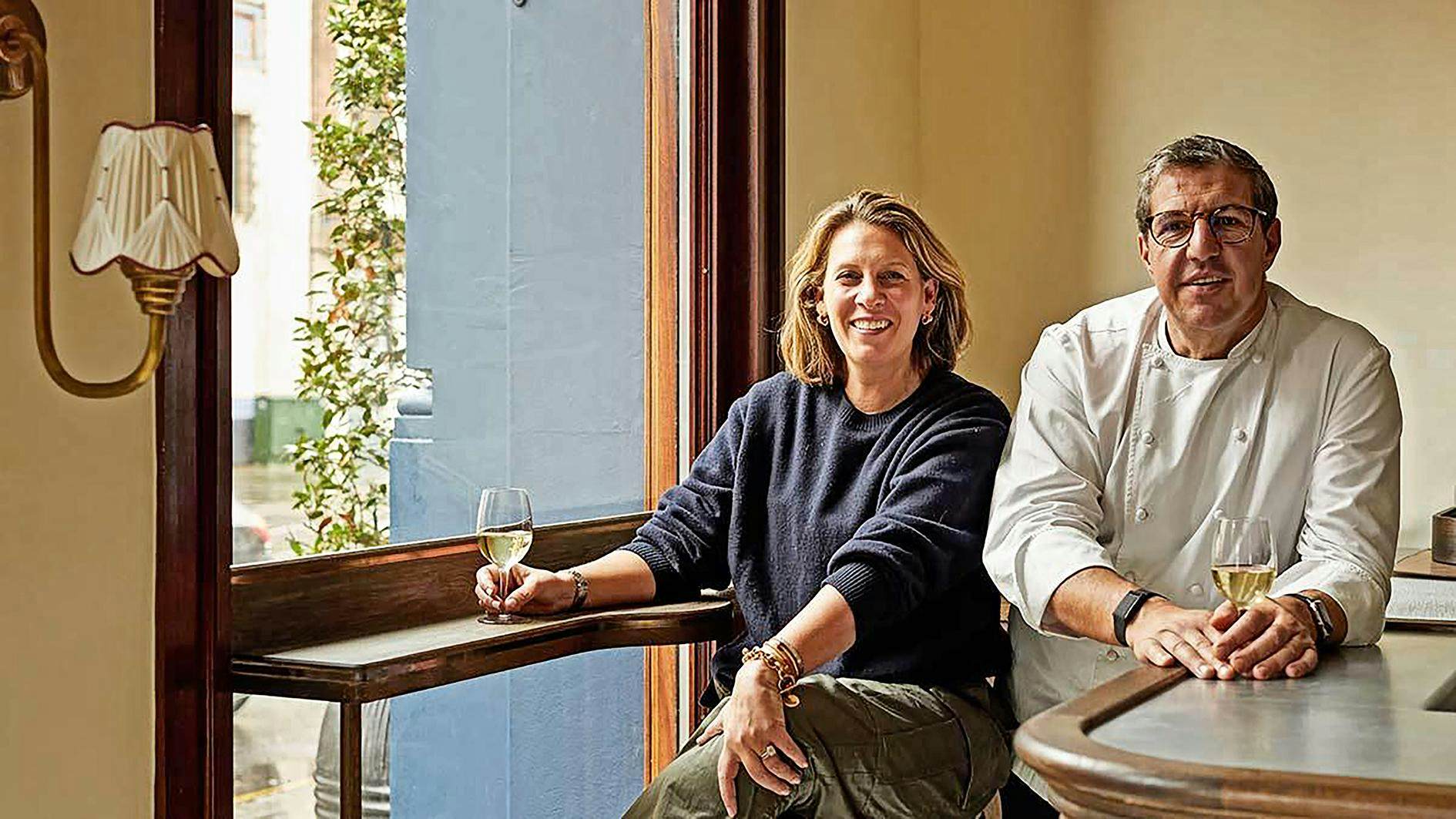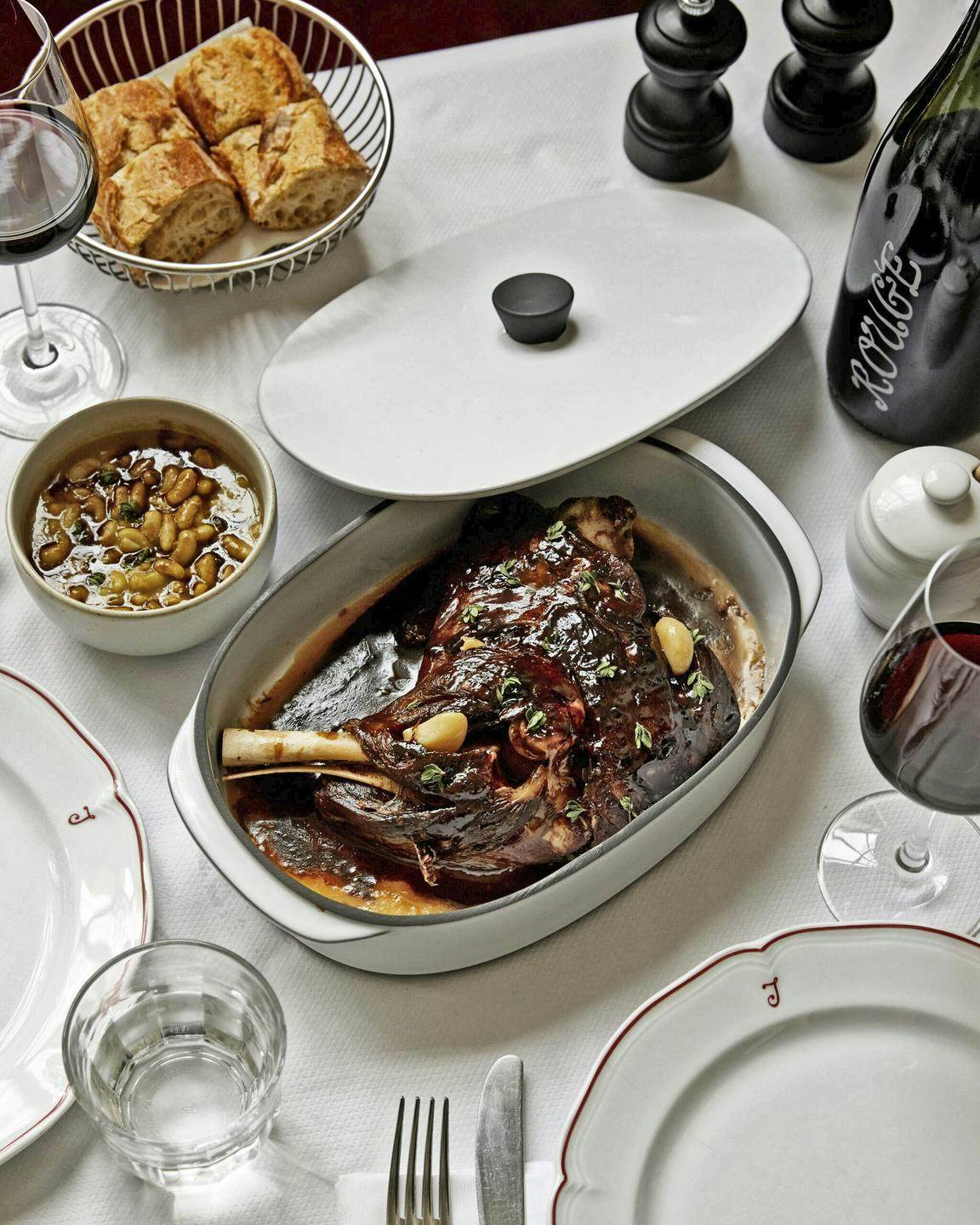This article is taken from the August-September 2025 issue of The Critic. To get the full magazine why not subscribe? Right now we’re offering five issues for just £25.
Concarneau, Brittany, 1991, August, 8am. The bleach suds in my bucket are as pure as the froth of the breakers I can hear on the beach. I’m on the early shift, scrubbing the restaurant terrace; back in the kitchen, Nicki the blond giant of a chef is shucking the first oysters of the day, the Breton cousin of the Camberwell Carrot clamped in the side of his mouth, left hand wrapped in a blue rag of ancient and indescribable filthiness.
I’m seventeen and I have a wooden-shuttered room on the port with a bidet in the corner and a mattress on the floor and my own key, I’m learning disreputable sailors’ French and Bashung’s hit “Osez Joséphine” is never off the radio, the Wall has come down, I’m part of the luckiest generation that ever lived and later, if we’ve squabbled and dodged fast enough through the rush of lunch, maybe the boss will put the sign up and open a couple of bottles of Sancerre and we’ll sit round a plate of Olérons with the blissful loose-limbed relief that only comes after eight hours on your feet. Happiness smells like Mr Propre, hash, sweat and seafood, and its soundtrack is “Joséphine”.
So when Claude and Lucy Bosi decided to call their French bistrot in Fulham “Joséphine”, they had me at the name. I tried to explain to Deirdre but she told me that listening to other people’s Proustian epiphanies is worse than hearing about their dreams.
Plus, late capitalism hadn’t worked out so well in the end and she wanted to drink some decent claret before we’re all reduced to grey water and murdering people for penicillin.

Joséphine is opposite the closed cinema on that bit of the Fulham Road that used to be nicknamed the Beach. It’s a square, unfussy space with Deco-ish glass chandeliers, sharp white linen and a menu featuring all the French classics one could wish for.
It was packed with jolly diners even at 7.30pm on a Wednesday, staff weaving briskly between packed tables, calls of “enleve!” on repeat from the kitchen. Took me right back, it did, not that I dared mention it.
We began with leeks vinaigrette, a soufflé of St Felicien and a trough of frogs’ legs swimming in chlorophyllic persillade, the meat sliding on a slick of garlic off those tiny little bones. Just two notes — a dish for the remains was lacking and the bread was too rustic: you want fluffy baguette here, not dense pain de campagne.
A middle course of asparagus and morels in a sabayon of vin jaune was as deceptively simple as a Mondrian mosaic, the contrasting clarities of deep mushroom and delicate spears brought together with the sauce, a puff of effervescent, almondy joy.

Veal sweetbreads showcased more morels, this time in a plush, glossy sauce, duck with olives was richly saline, the fruit giving another layer of aroma to the meat. Potatoes are rightfully given their own “PDT” section on the menu, where I was thrilled to find old-school pommes duchesse alongside the gratin and frites, though we sacrificed them in anticipation of one of Joséphine’s sharing puddings, a chocolate mousse for two that would have done for four, but then chocolate mousse is something one always wants too much of.
I want to go back to try them; in fact, I want to eat the whole menu, particularly the set dinner, exceptionally priced at £24.50 for two courses or £29.50 for three, a bargain by London standards, especially so with this level of cooking.
Again, the emphasis is traditional, oeufs en meurette or quenelles de brochet as starters, with the mains at the punchier end of the repertoire — croquette of pig’s trotter, black pudding with apple or andouillette. It takes a confident chef to put something that looks like an interrupted organ transplant on a plate, but I have no doubt Joséphine can pull it off.
Some connard described Joséphine as “Café Rouge with lipstick on”, but profoundly and unapologetically French food is hard to find, harder still at this degree of refinement and these prices.
Actually, a third note — the tables are much too close together, justified given the costs-to-numbers ratio, but I would happily have paid an extra couple of pounds not to listen to the blokes at the next table showing off their O-level French to the sommelière.
They got short shrift — she’s from Georgia and besides, had serious business with Deirdre’s bottle of 1982 Chateau Haut-Brion. A tense moment when she drew the cork — would it be ambrosia or tinny brown sadness? The colour was a little pale, but the structure, she assured us, was intact.
The wine didn’t so much pour as glide from the glass to the throat to the hippocampus, sparking a can-can chorus of happiness remembered.
“Our lives are in this bottle,” whispered Deirdre.
Maybe your eidolons are not French, but whether or not your delight in momentariness is conjured by escargots and onion soup, Joséphine is pure elation. Not nostalgic, but confident, current and gorgeously Gallic. Daring indeed.
Joséphine Bouchon, 315A Fulham Road, London SW10 9QH












